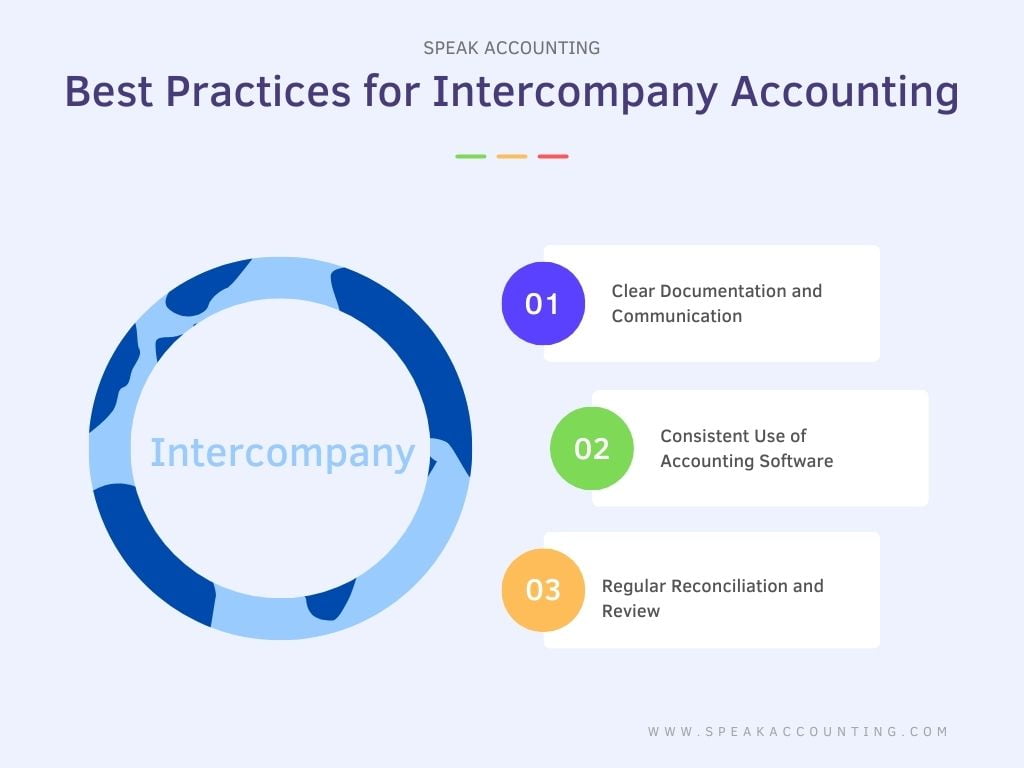

In the intricate world of business accounting, intercompany transactions can be a complex yet crucial aspect of financial management. Whether you’re an accountant, finance manager, or small business owner, understanding and implementing best practices in intercompany accounting is essential for maintaining accurate and transparent financial records.
What is Intercompany Accounting?
Intercompany accounting involves recording and managing transactions between related entities within the same corporate group. These transactions can include loans, sales, transfers of services, or other financial activities that occur between subsidiaries or divisions of a parent company.
Intercompany accounting ensures that these transactions are accurately tracked and reported, providing a clear picture of the financial health of each entity and the overall organization. This practice is vital for regulatory compliance, financial transparency, and effective decision-making.
The Importance of Intercompany Accounting Practices
Effective intercompany accounting practices are crucial for several reasons:
- Regulatory Compliance: Accurate recording of intercompany transactions ensures compliance with local and international accounting standards, reducing the risk of financial penalties and legal issues.
- Financial Transparency: Transparent intercompany accounting provides stakeholders with a clear view of the financial performance of each entity, facilitating better decision-making and strategic planning.
- Operational Efficiency: Streamlined intercompany accounting processes reduce the time and effort required for financial reconciliations, allowing your team to focus on value-added activities.
Best Practices for Accurate Intercompany Transactions

To achieve accuracy and efficiency in intercompany accounting, consider implementing the following best practices:
Clear Documentation and Communication
One of the foundational elements of effective intercompany accounting is maintaining clear and consistent documentation. Ensure that all intercompany transactions are well-documented, including details such as transaction dates, amounts, involved entities, and descriptions.
Regular communication between departments and entities is also essential. Establishing standardized communication protocols helps prevent misunderstandings and discrepancies, ensuring that all parties are on the same page.
Consistent Use of Accounting Software
Leveraging accounting software specifically designed for intercompany transactions can significantly enhance accuracy and efficiency. Such software provides features like automated transaction recording, real-time data synchronization, and built-in compliance checks.
Consider upgrading to a cloud-based accounting platform with integrated intercompany functionality. This allows for seamless collaboration between entities, regardless of geographical location, and ensures that financial data is always up-to-date.
Regular Reconciliation and Review
Regular reconciliation and review of intercompany accounts are vital to catch and correct errors promptly. Schedule periodic reviews to compare intercompany transactions recorded in different entities’ books, identifying and resolving discrepancies.
Reconciliation should also involve verifying that all transactions are properly documented and comply with internal policies and external regulations. This proactive approach minimizes the risk of financial misstatements and ensures accurate reporting.
Common Challenges in Intercompany Accounting and Solutions
Despite best efforts, intercompany accounting can present several challenges. Here are some common issues and practical solutions:
Currency Conversion
For multinational corporations, currency conversion is a significant challenge in intercompany accounting. Fluctuations in exchange rates can lead to discrepancies in financial records.
Solution: Implement sophisticated accounting software that automatically handles currency conversion. This software should use real-time exchange rates to ensure accuracy and consistency across entities. Additionally, establish clear policies for currency conversion, including standardized rates and frequency of updates.
Timing of Transactions
Timing discrepancies can occur when transactions are recorded at different times in different entities’ books, leading to mismatched records.
Solution: Establish standardized cut-off dates for recording intercompany transactions. Ensure that all entities adhere to these dates to maintain consistency. Regularly communicate and coordinate with all involved parties to minimize timing-related discrepancies.
The Role of Technology in Streamlining Intercompany Accounting
Technology plays a pivotal role in simplifying and enhancing intercompany accounting processes. Advanced accounting software offers several benefits, including:
- Automation: Automating repetitive tasks, such as transaction recording and reconciliation, reduces the risk of human error and saves time.
- Real-Time Data: Real-time data synchronization ensures that financial information is always up-to-date, facilitating accurate reporting and decision-making.
- Compliance: Built-in compliance checks and reporting features help ensure that all transactions adhere to relevant accounting standards and regulations.
Future Trends and Innovations in Intercompany Accounting
The field of intercompany accounting is continuously evolving, driven by technological advancements and changing business landscapes. Here are some future trends to watch for:
- Artificial Intelligence (AI): AI-powered tools can analyze vast amounts of financial data to identify patterns, detect anomalies, and provide predictive insights, enhancing the accuracy and efficiency of intercompany accounting.
- Blockchain Technology: Blockchain offers a secure and transparent way to record and verify intercompany transactions, reducing the risk of fraud and improving data integrity.
- Robotic Process Automation (RPA): RPA can automate complex and repetitive tasks, such as data entry and reconciliation, freeing up valuable time for finance teams to focus on strategic activities.
Conclusion
In conclusion, mastering intercompany accounting is essential for maintaining accurate financial records, ensuring regulatory compliance, and making informed business decisions. By implementing best practices, leveraging technology, and staying ahead of emerging trends, accountants, finance managers, and small business owners can streamline their intercompany accounting processes and achieve greater efficiency.
If you’re looking to enhance your intercompany accounting practices, consider exploring advanced accounting software solutions and consulting with experts in the field. For more insights and guidance on intercompany transactions, check out our Introduction to Intercompany Transactions blog post.
Taking these steps will not only improve your financial management but also position your organization for long-term success. Start refining your intercompany accounting practices today and unlock the full potential of your business!
Share this content:
